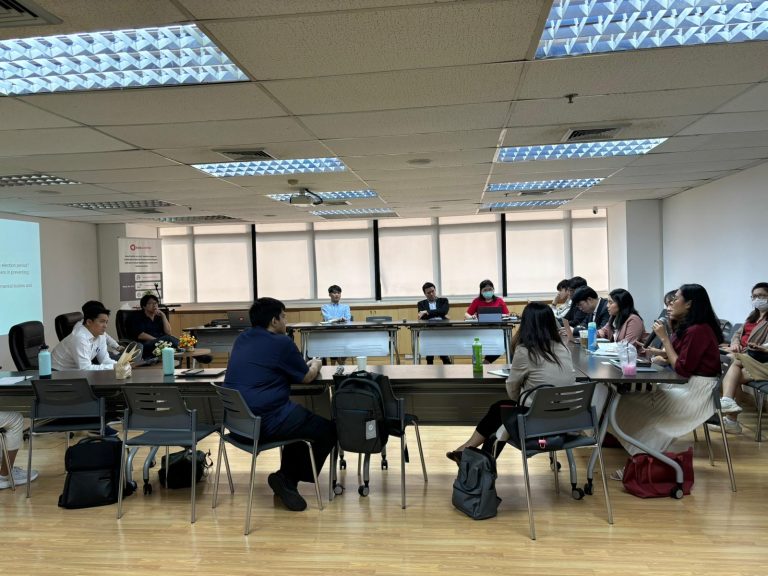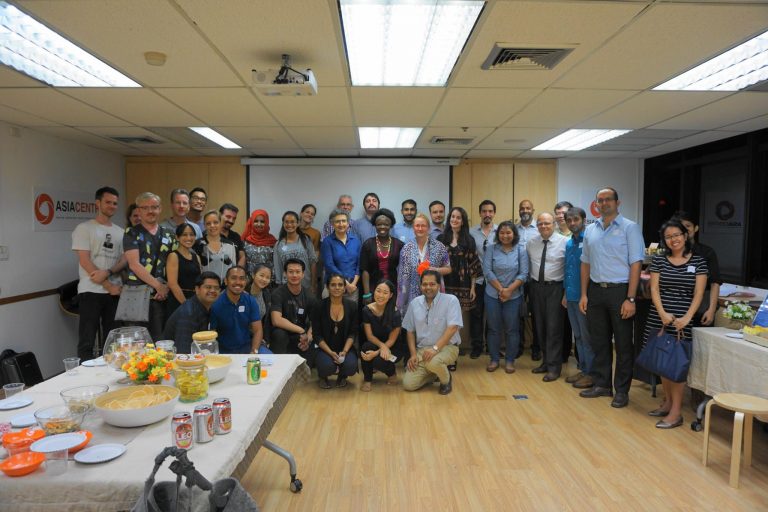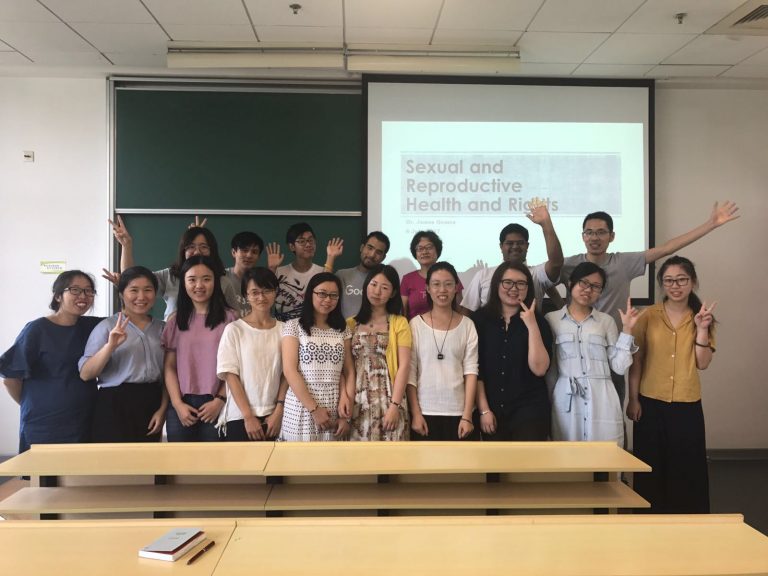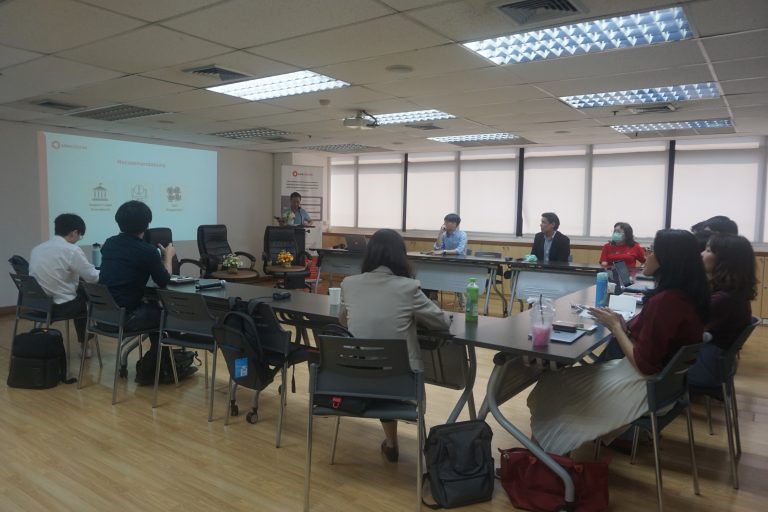
On 12 January 2024, Asia Centre organised a roundtable discussion titled “Safe Internet Usage in Thailand,” which brought together representatives from political parties, government agencies, civil society organisations, and the media. The objective of the roundtable was to lay the groundwork for advocacy initiatives focused on digital rights and promoting safe internet usage in 2024 in Thailand.
Yawee Butrkrawee, Senior Researcher at Asia Centre, opened the roundtable discussion by presenting the key findings and policy recommendations from Asia Centre’s policy brief Restrictions on Internet Freedoms: Recommendations for Thai Policy-makers and Civil Society. The report analyses the ramifications of both legal and non-legal measures implemented by the Thai government, which have impacted internet freedoms in the country and furnishes a comprehensive set of recommendations tailored for a diverse range of stakeholders, aimed at enhancing internet freedoms across Thailand.
Including drawing inputs from the latest analysis from in the media and independent reports, this policy brief also drew from Asia Centre’s three baseline studies on Thailand: State-sponsored Online Disinformation: Impact on Electoral Integrity in Thailand (2023); Internet Freedoms in Thailand (2022); and Thailand Computer Crime Act: Restricting Digital Rights, Silencing Online Critics (2022).
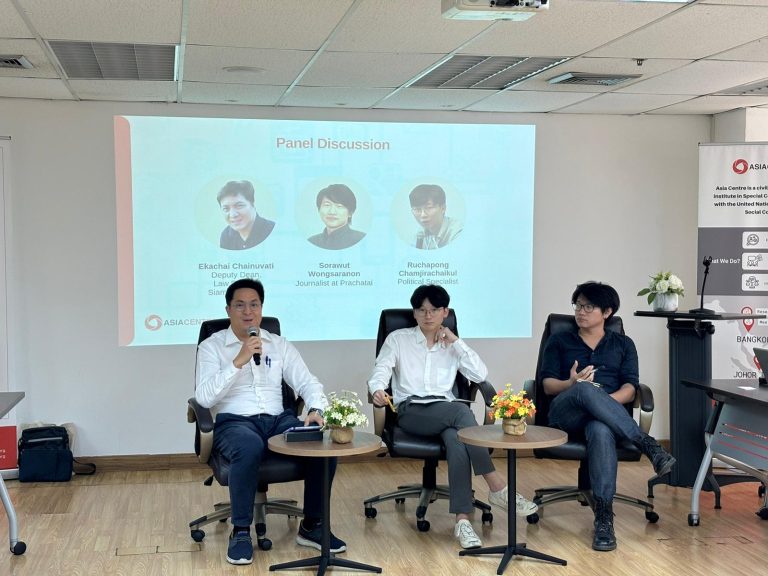
After Mr Butrkrawee presented policy recommendations, three speakers contributed insights to the findings, laying the groundwork for the roundtable discussion. Prof Ekachai Chainuvati, Deputy Dean of the Law Faculty at Siam University in Bangkok, commented on the impact of both legal and non-legal measures on internet freedoms in Thailand. He emphasised that while there is consensus within civil society about the necessity to amend problematic provisions, leaders lack the political will to do so. Addressing this challenge requires not only sustained advocacy but also cross-sectoral engagement between policymakers and civil society actors.
Ruchapong Chamjirachaikul, representing iLaw, provided context to the discussion on digital rights and internet usage in Thailand within the broader framework of constitutional drafting initiated in late 2023. He argued that rights related to internet use should be constitutionally safeguarded on par with other fundamental rights, such as freedom of expression. This recognition is crucial to emphasise the significance of the online sphere as a platform for public discourse and mobilisation.
Sorawut Wongsaranon, a journalist from Prachatai, an independent media outlet in Thailand, underscored the essential link between digital rights, media freedoms, and the overall functionality of the media sector in Thailand. Expanding on the report’s findings, he pinpointed additional areas where the application of both legal and non-legal measures disproportionately affected journalists. Wongsaranon emphasised that the use of laws to remove or restrict access to information creates an imbalance between authorities and journalists, undermining the credibility of the latter’s content and restricting the media’s role as a watchdog.
After the three interventions by the three speakers, the floor was opened for discussion. Conversations revolved around recognising the imperative for collaboration between civil society and various state bodies, focusing on issues such as freedom of expression, the right to privacy, and digital literacy. Participants also delved into the influence of internet service providers and social media platforms on online content, urging these entities to take proactive measures to ensure the digital space continues to function as a marketplace of ideas.
This roundtable discussion served as a complement to the earlier bilateral engagements conducted by Asia Centre with public institutions in December 2023. During these engagements, representatives of the Centre delved into the implications of legal and non-legal measures, as outlined in the report, on internet freedoms in Thailand. The discussions included interactions with King Prajadhipok’s Institute, the National Human Rights Commission of Thailand (NHRCT), and the Digital Economic Promotion Agency (DEPA). Key focal points of these discussions encompassed matters such as public trust in state institutions, policymaking priorities related to internet freedoms, and the promotion of digital literacy.
These engagements have fortified Asia Centre’s collaborations with diverse government and non-governmental institutions and organisations, enabling the Centre to broaden its scope of policy research, capacity-building initiatives, and advocacy efforts concerning internet freedoms in both Thailand and Southeast Asia.
Asia Centre is a civil society research institute in Special Consultative Status with the United Nations Economic and Social Council. It serves as a knowledge partner and undertakes evidence-based research as well as provides capacity-building training for end beneficiaries. If you would like to collaborate with the Centre, please send an expression of interest to contact@asiacentre.org.
Follow Asia Centre’s social media channels for more information.

